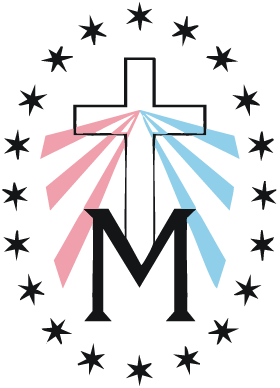Precepts of the Church
The Church uses the Precepts to remind us that Christian life requires a commitment to prayer, and active participation in the liturgy and sacraments. The Precepts of the Catholic Church are minimum levels of participation in the life of the Church. Out of love for Christ and a desire to advance in the spiritual life, you will normally try to do far more than they require.
The First Precept -
"You shall attend Mass on Sundays and holy days of obligation and rest from servile labor."
This requires the faithful to sanctify the day commemorating the Resurrection of the Lord as well as the principal liturgical feasts honoring the mysteries of the Lord, the Blessed Virgin Mary, and the saints; in the first place, by participating in the Eucharistic celebration, in which the Christian community is gathered, and by resting from those works and activities which could impede such a sanctification of these days.
The Second Precept -
"You shall confess your sins at least once a year."
This ensures preparation for the reception of the Eucharist by the reception of the sacrament of reconciliation, which continues Baptism's work of conversion and forgiveness.
The Third Precept -
"You shall receive the sacrament of the Eucharist at least during the Easter season.”
This guarantees as a minimum the reception of the Lord's Body and Blood in connection with the Paschal feasts, the origin and center of the Christian liturgy.
The Fourth Precept -
"You shall observe the days of fasting and abstinence established by the Church.”
This ensures the times of ascesis and penance which prepare us for the liturgical feasts and help us acquire mastery over our instincts and freedom of heart.
The Fifth Precept -
"You shall help to provide for the needs of the Church.”
This means that the faithful are obliged to assist with the material needs of the Church, each according to his own ability.
(Catechism of the Catholic Church # 2041-2043)
These precepts of the Catholic Church are required, unless you have a legitimate reason for not meeting them. Examples include:
- If you are sick, tending to a sick child, or camping in the wilderness on Sunday and cannot get to Mass, it is not a grave violation to miss Mass that day.
- Children, the elderly, and pregnant or nursing women do not have to fast on normal fast days (Ash Wednesday and Good Friday).
“It is in the Church, in communion with all the baptized, that the Christian fulfills his vocation. From the Church he receives the Word of God containing the teachings of "the law of Christ." From the Church he receives the grace of the sacraments that sustains him on the "way." From the Church he learns the
example of holiness and recognizes its model and source in the all-holy Virgin Mary; he discerns it in the authentic witness of those who live it; he discovers it in the spiritual tradition and long history of the saints who have gone before him and whom the liturgy celebrates in the rhythms of the sanctoral cycle.
The moral life is spiritual worship . In the liturgy and the celebration of the sacraments, prayer and teaching are conjoined with the grace of Christ to enlighten and nourish Christian activity. As does the whole of the Christian life, the moral life finds its source and summit in the Eucharistic sacrifice.” (Catechism of the Catholic Church #2030, 2031)

